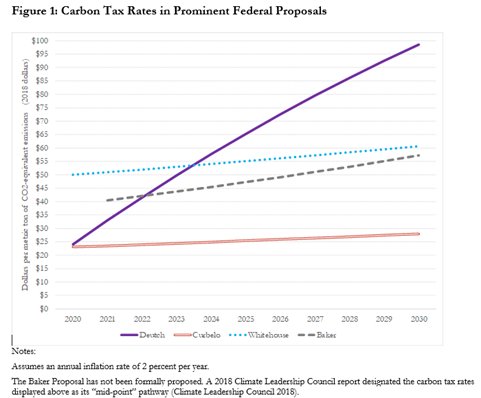energypolicy.columbia.edu/compatibility-…
1. The price on carbon should be far larger than zero.
2. A carbon price alone is not an ideal climate policy.
3. Some policies fit better alongside a carbon price than others.
Even on twitter, these are uncontroversial, right?
-It enables more cost-effective GHG reductions than a carbon tax on its own;
OR
-It reduces GHGs *and* achieves a separate policy objective more cost-effectively than a federal carbon tax on its own.
A man can dream, right?













